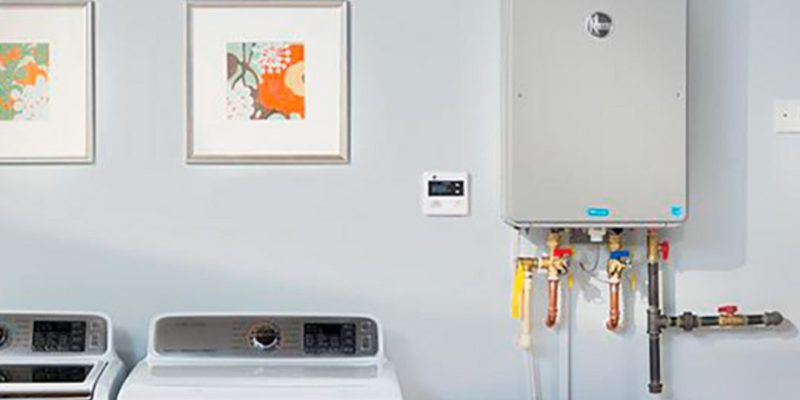
As the global shift towards sustainability and preservation of natural resources becomes more prominent, many homeowners are looking for ways to reduce their carbon footprint and make their homes more energy efficient. Tankless hot water heaters have gained steady popularity in recent years due to the numerous environmental and cost saving benefits they provide homeowners, as well as their aesthetic appeal. This article will go over some of the advantages of switching to a tankless hot water heater and how making this change can contribute to a more sustainable and environmentally friendly home.
Reduced Energy Consumption
One of the primary environmental benefits of tankless hot water heaters is their on-demand heating capability. Unlike traditional storage tank systems, which constantly heat and reheat water regardless of usage, tankless systems only heat water when needed and as it’s being used. Over time, this significantly reduces energy consumption and leads to noticeable savings on energy bills for homeowners, making tankless hot water heaters a more eco-friendly and cost-effective water heating solution.
Increased Energy Efficiency
Tankless hot water heaters have a higher energy efficiency rating compared to traditional storage tank systems. This increased efficiency translates to lower greenhouse gas emissions, as less energy is required to heat the water. By switching to a tankless hot water heater, you can have peace of mind knowing that you’re doing everything possible to reduce your home’s overall carbon footprint and contributing towards a greener environment.
Reduced Water Wastage
One of the most underrated environmental advantages of tankless hot water heaters is the reduction in water waste. Traditional storage tank systems suffer from standby loss, which is an effect that occurs when heat is lost from the stored hot water, causing the system to use more energy to maintain the desired temperature of the water remaining in the tank. Tankless systems, on the other hand, eliminate standby loss by only heating the water as it’s being used. This not only conserves energy, but also reduces water waste, as less water is needed to run out of a tap or dispenser in order for it to reach the desired temperature.
Longer Lifespan
Tankless hot water heaters typically have a longer lifespan compared to traditional storage tank systems. This means that, over time, fewer resources are consumed in the manufacturing and disposal of these units. By choosing a tankless hot water heater, you can help to reduce waste and contribute to a more sustainable use of resources when it comes to appliance manufacturing.
Potential for Renewable Energy Integration
Some tankless hot water heaters can be integrated with renewable energy sources, such as solar or geothermal energy. If you have access to these alternative energy sources, you can utilise them to power your tankless hot water heater, further reducing your home’s reliance on non-renewable resources.
Making the Switch to a Tankless Hot Water Heater
The environmental benefits of switching to a tankless hot water heater are clear, from reduced energy consumption and greenhouse gas emissions to decreased water waste and resource consumption. By opting for a tankless hot water system, you can contribute to a more sustainable and eco-friendly home, while also enjoying the added advantages of on-demand hot water and increased energy efficiency.
When considering a tankless hot water heater, it’s important to research the various options available and choose a system that best suits your home’s needs and priorities. With the right choice, you can enjoy the numerous benefits of a tankless hot water heater and take pride in the fact that you’re contributing towards a more sustainable future for all.







